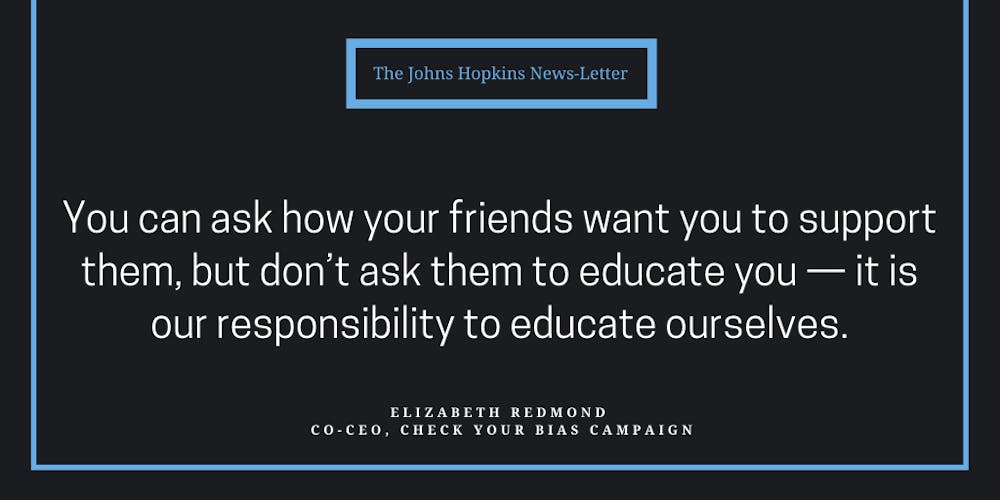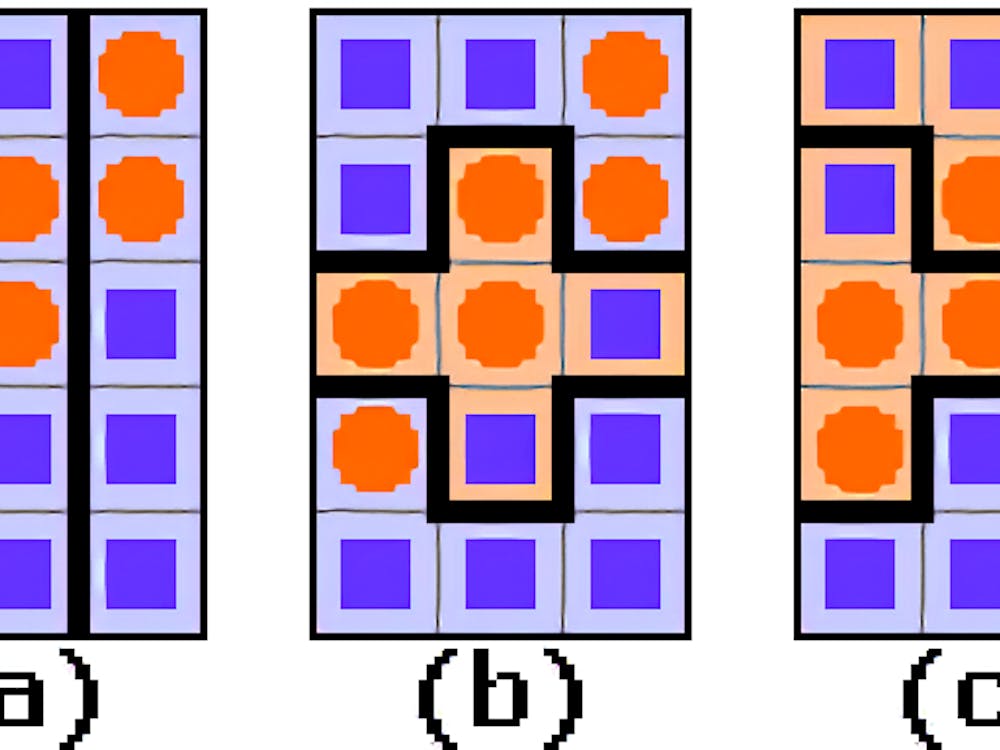“You may wish that you weren’t Asian, but remember that your ancestors likely went through similar or even worse incidents.” This was a sentence on the anti-Asian racism resources page of Harvard University’s Counseling and Mental Health Services website. Shortly after the Atlanta shootings in March, it was taken down, and an apology was posted. The incident sparked an outcry among Harvard affiliates and highlighted just how poorly many Americans are responding to racism and hate-based violence.
Now is the time to listen to those in the Asian American Pacific Islander (AAPI) and larger Asian Pacific Islander and Desi American (APIDA) communities who have spoken out against the recent surge in anti-Asian violence and the racism they face every day. White students like myself must use our privilege to create a safe space at Hopkins for Asian, Asian American and all students of color.
“Where do I begin?” you may ask. There are many ways to start cultivating a safe space for your friends and peers who are members of minority groups. You can ask how your friends want you to support them, but don’t ask them to educate you — it is our responsibility to educate ourselves.
For starters, you should learn how to properly pronounce Asian names, as pronouncing someone’s name correctly is a basic sign of respect. You should use resources like the articles recommended on the University’s Student Wellness Blog to learn more about issues that affect the APIDA community.
Both false information shared with the intent to cause harm (disinformation) and without the intent to mislead (misinformation) about COVID-19 have caused Sinophobic incidents to spike. They have resulted in the harassment of, violence against and even the murder of AAPI people.
The organization Stop AAPI Hate began collecting reports on anti-Asian hate in March of 2020. It received 2,808 firsthand accounts in 2020 alone from 47 states and Washington, D.C. In many of these incidents, attackers blamed victims for bringing COVID-19 to the U.S.
This rise in violence is tied to the conspiracy theory that scientists in China engineered COVID-19 as a bioweapon. This scientifically unsupported notion has spread widely online, with real-life consequences.
Many fall prey to fearmongering headlines or confirmation bias and simply share related posts on social media without fact-checking them. It is our responsibility to distinguish between real and false claims in order to avoid amplifying harmful rhetoric.
We must recognize, call out and avoid unintentionally spreading misinformation and unwittingly contributing to anti-Asian violence.
Elizabeth Redmond is a junior from Charlotte, N.C. majoring in Writing Seminars and minoring in Marketing & Communications. She is the co-CEO of the Check Your Bias campaign, run by the Advertising and Integrated Marketing Communications class, which created the myBIAS Quiz to assess users’ susceptibility to believing misinformation.





